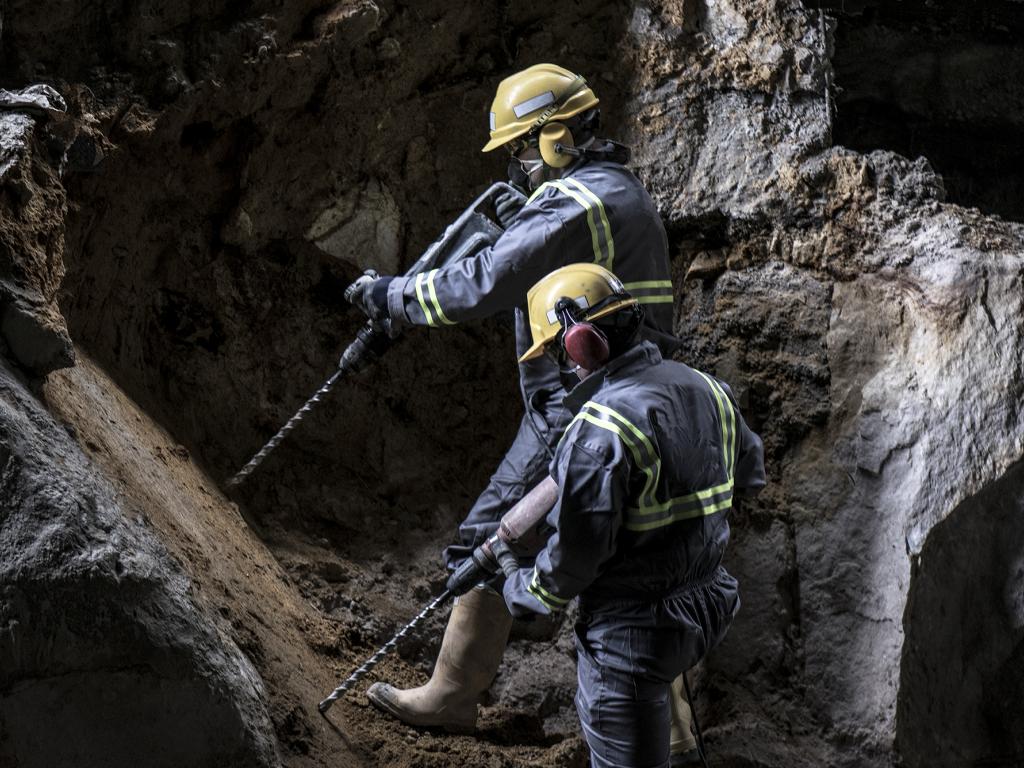Automation, Digitalisation & Mine Workers in a Just Energy Transition

Written by: Lindsay Moses
The Risk
In a coal mining-dependent state like South Africa, questions such as what protections can create sectoral resilience amidst the goals of an energy transition? how far should a state go to protect its workforce? and what does sustainability look like for coal workers? have all taken a centre stage in contemporary discourse on just energy transition. The mining sector is a unique sector, playing a particularly influential role in state affairs. When a state’s GDP is so closely tied to extractive projects mining is especially important. Resource-dependent states like South Africa can attest. With calls for a just transition entering our global dynamics, carbon-intensive sectors will likely be the first to experience its effects, and must thus be managed accordingly.
The fear of environmental advancement, through decarbonisation, wreaking havoc on a particular sector’s labour force is a long-held anxiety. A complete shift away from coal will likely affect coal workers most adversely. Workers in high carbon-emitting sectors must often advocate for themselves. This was evidenced in the 1970s. The term ‘just transition’ originates in the 1970s trade unionist protests of American coal workers, concerned with the state’s advancing decarbonisation efforts.
As decarbonisation becomes more entrenched in global objectives, these anxieties regarding worker wellbeing only concretise these long-held fears of being neglected. This is likely to be mimicked at a national level. Decarbonisation has become an entrenched national objective in South Africa, but what commitments to coal worker resilience can be found in South Africa’s energy transition framework?
The coal industry alone employs an estimated 92 000 people countrywide, primarily in the Mpumalanga and Limpopo provinces. The Climate Commission initiative created by President Rampahosa following his first mention of the urgency of energy transition, has recognised that those people and communities reliant on the coal value chain are highly at risks of facing hardships once the sector responds to climate change.[1]
The Trend
Like all other sectors, the mining sector is influenced by global trends and dynamics. The “fourth industrial revolution” has gained popularity in recent years, with the role of advanced technology like artificial intelligence, blockchain technology and biotechnology in human development never being considered more seriously.[2] The mining sector, influenced by growing global environmental concerns and ever-advancing technologies, has responded with the creation of innovative and less invasive mining techniques and technologies. Advancing mechanisation and digitalisation mean that low-skilled workers may be replaced by technology which is cheaper, safer, and more efficient in production.
When considering this fact coupled with the job losses that could follow transition and decarbonisation efforts (like the decommissioning of coal plants), the risk to livelihoods of unskilled or low-skilled workers is aggravated.
The Opportune Solution
The 4IR will require companies, regardless of sector, to re-skill and upskill workers and prioritise human resource management accordingly. It may be too naive to expect the mining sector, a sector driven primarily by profit creation, to create robust worker protections or pivot their priorities to worker upskilling. The South African government is thus essential for the mining sector in creating an environment fostering worker resilience and sectoral responsiveness to rising automation and digitalisation.
Fortunately, South African mine workers are less likely to be as adversely affected as Global North states with more advanced technologies.[3] Regardless, a more precautionary approach will be in favour of South Africa. South Africa already has a framework receptive to innovative, resilient, and future-forward action. The government’s Integrated Resource Plan estimates that the job opportunities created by renewable energy production will outweigh the job losses in coal. However, there is an assumption that this equates to the absorption or coal workers into the reenables sector. This is not possible without coal workers first being appropriately reskilled.
One legislative mechanism already at South Africa’s disposal is the Skills Development Act (SDA), which is fortunately applicable to mining right holders. Right holders must contribute levies to the employee skills development fund through the SDA. These funds can be mobilised to upskill workers across the mine value chain such as operators, miners, artisans, technicians, professionals, and managers.
Sector skill planning is managed by the Mining Qualifications Authority (MQA) which sets the sector’s standard and quality of qualifications. The MQA has the power to make concerted efforts which influence education systems (especially in the high-risk provinces of Mpumalanga and Limpopo). The MQA may additionally focus learning programmes and certificates on high-end skills development relevant to the increased automation and digitalisation trends such as information technology and software engineering. Skills training for coal sector miners has yet to implement 4IR skills into core programmes, in many accredited training colleges.
Arguably, one of the most direct mechanisms the state can engage is by attaching social, economic or environmental obligations to mining rights obtained by mining companies. Legal obligations can address concerns directly, can occur and within an observable time frame, and can be subject to compliance and review. This is also an opportunity for the necessary pivot away from the sector’s ownership-based concepts of development found in the Broad-Based Socio- Economic Empowerment Charter for the Mining and Minerals Industry and towards redefining development to include and prioritise regenerative policies of knowledge and skills transfer. The state may supplement worker efforts by reassessing its legislative framework for responsiveness and creating obligations that centre knowledge transfer. South Africa may achieve an effective just transition but must prioritise workers’ upskilling and create fossil fuel industry workforce adaptability and resilience.
[1] See: Presidential Climate Commission Technical Report, ‘Just Transition Framework Final Report and Recommendations July 2022’, Published 7 July 202, p.10. Available for download at Just Transition Framework – Final Report and Recommendations, June ... (climatecommission.org.za).
[2] Schwab K, The Fourth Industrial Revolution. Geneva: WEF (World Economic Forum), 2016
[3] Cilliers, Jakkie et al. “The Future of Work in Africa.” The Future of Africa, 2021.
